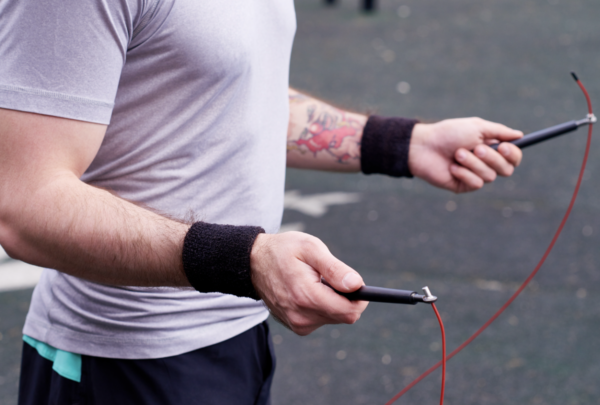Addiction treatment is never a “one and done” experience.

Recovery is a life-long process of day-to-day maintenance. It becomes routine and it gets easier, but it always takes work. You have to take recovery one day at a time, no matter what. There will never be a day where you’ve “completed” your recovery journey. The journey continues for as long as you are alive.
There are two ways to look at this fact.
One way is to look at the day-to-day maintenance involved in recovery as a very bad thing. For many, this fact feels like a very overwhelming aspect of recovery. “You mean I have to maintain my recovery every day? Every single day? And the job never ends?” It’s understandable that this “daily grind” of recovery and relapse prevention can feel very disheartening to people in early recovery. This is especially true when you’re feeling tired and uncertain about this new lifestyle you’re embarking on.
Here’s another way to look at the daily work of recovery. It’s this: Every day, you get the opportunity to renew your commitment to your health and wellbeing. For people who approach recovery as a choice – maybe even a privilege – the old adage of “taking it one day at a time” does indeed ring true. Since we can only physically be responsible for ourselves in the present, we really only need to worry about what we’re doing right now. Are we choosing recovery or are we choosing relapse? Are we making small, incremental steps in the direction of our recovery journey or are we making small, incremental steps in the opposite direction? In recovery, we get to ask ourselves this question every day and adjust accordingly.
So, how does that adjustment work?
Well, there are daily habits that we must all adopt to support our health and recovery. These habits will be slightly different for each individual, but there are some tried-and-true rules of thumb that we’ve found to be paramount for every patient at Shanti Recovery and Wellness. We’ll share those with you now.
Get 8 Hours of Sleep on a Regular Schedule
Establish a consistent sleep routine and maintain it at all costs. If 8 hours of sleep is not possible for you, then get as many hours as you can. Go to bed at the same time every day. Wake up at the same time every day. Establish a “bedtime routine” that signals to your body that now is the time to wind down and start thinking about falling asleep.
Sleep is how our bodies regenerate. It’s not optional. Without good sleep, you are at a much higher risk for emotional disregulation and relapse.
Eat 3 Healthy Meals a Day

Skipping meals or eating foods that don’t fuel your body with the nutrients it needs will set you up for relapse. Eating balanced meals and healthy snacks throughout the day will give you consistent energy and will help you make good choices all day long. Always shoot for a mix of complex carbohydrates, protein, fruits and vegetables. Avoid foods that are high in sugar as these might satisfy cravings but they will just drop your energy levels later. If you need help getting your diet on track, we have a nutritionist on site at Shanti Recovery and Wellness that specializes in meal planning and nutritional support plans for people in recovery.
Exercise 3 Times a Week at Minimum

Exercise is great for your body but it is excellent, too, for your mental health. Doing everything we can to feel good in recovery is perhaps one of the most important aspects of maintaining long term sobriety. Simply put, exercise helps us feel good. It releases endorphins and other feel-good chemicals that signal to your body that all is well in the world – naturally, and without undesirable side effects. Three times a week for 20 minutes is a great place to start. Simply walking around your neighborhood for 20 minutes is enough. Begin there and build up to exercising everyday.
Choose a De-stressing Activity and Do it Everyday

Stress is one of the number one causes our patients give for the development of their problems with drugs and alcohol. If the stress would just go away, then there would be no need for substances of abuse. Unfortunately, we can do things to minimize stress in our lives but stress itself will never go away. There will always be some amount of stress in our lives. At times, there will be a great deal of stress. This is just unavoidable.
De-stressing activities help us cope with stress that can sometimes feel overwhelming. Studies have demonstrated that mindfulness meditation can dramatically reduce stress chemicals in the body. There are many, many different ways to practice mindfulness meditation. Youtube is a great, free resource for guided meditations if you’re looking for ideas. There are secular, Buddhist, Christian, Jewish, Muslim, etc traditions of mindfulness meditation – find a tradition or mode of meditation that feels meaningful to you. Some of our patients have also found tapping meditations – also called Emotional Freedom Technique – to be helpful. Again, you can find all of these techniques in guided meditations on Youtube.
If mindfulness meditation is not your speed, then try active meditation. This can look like knitting, coloring, cooking or gardening. It doesn’t matter what the activity is – just that you bring your full awareness to the activity and focus on it to the exclusion of all other thoughts. Essentially, you are inducing a “flow” state.
What you’ll find at Shanti Recovery and Wellness…
Portland residents tend to gravitate towards our programs because we offer a warm, family-style environment with knowledgeable clinicians in a comfortable setting. Our building is a converted craftsman that looks and feels more like a chiropractor’s office or a naturopathic family medicine clinic than it does an addiction treatment center. We tailor our patient-centered treatment plans around your preferences and goals, taking the whole patient into consideration, rather than treating addiction in isolation.
Interested to learn more about how we can help? Give us a call today to begin your journey to freedom from addiction!
